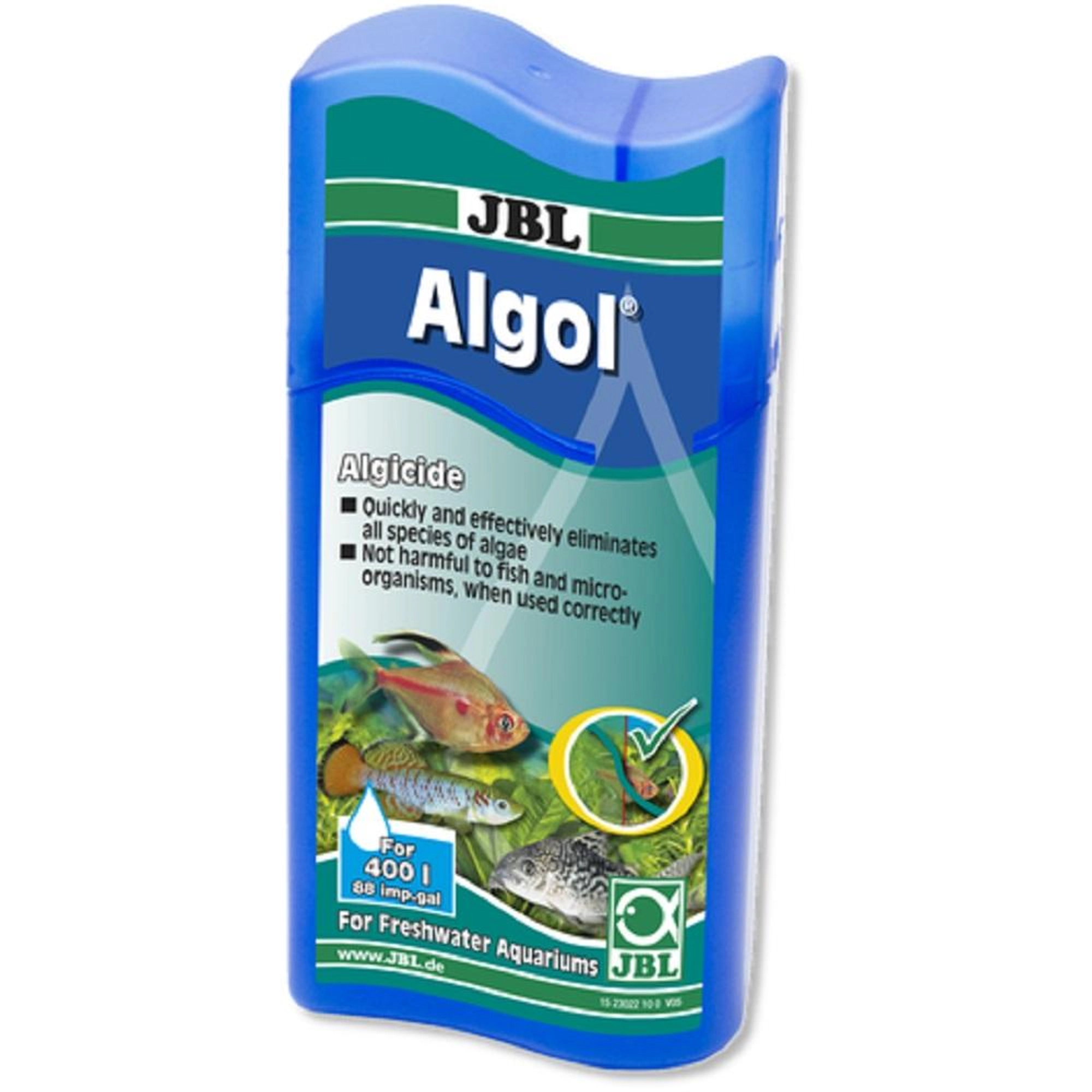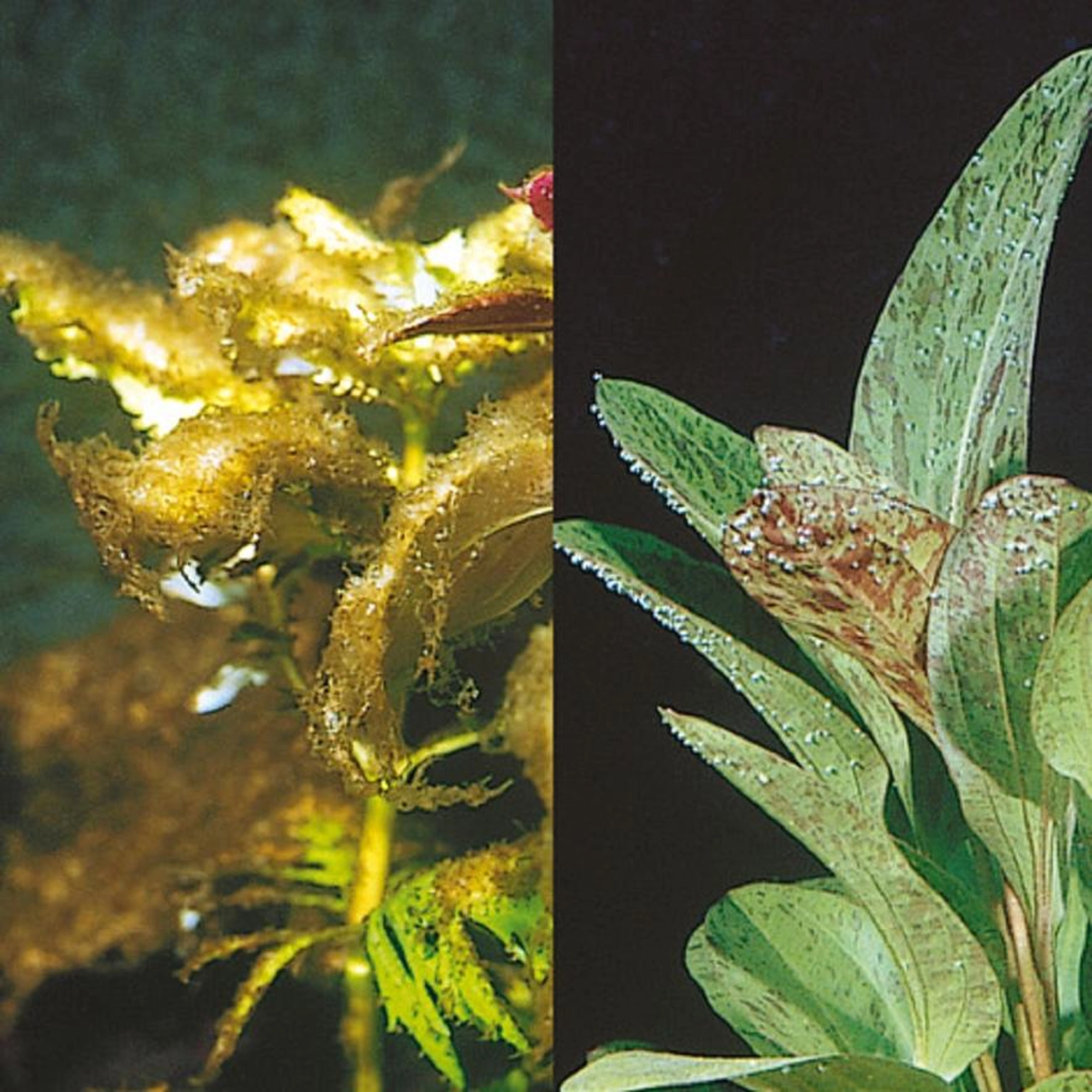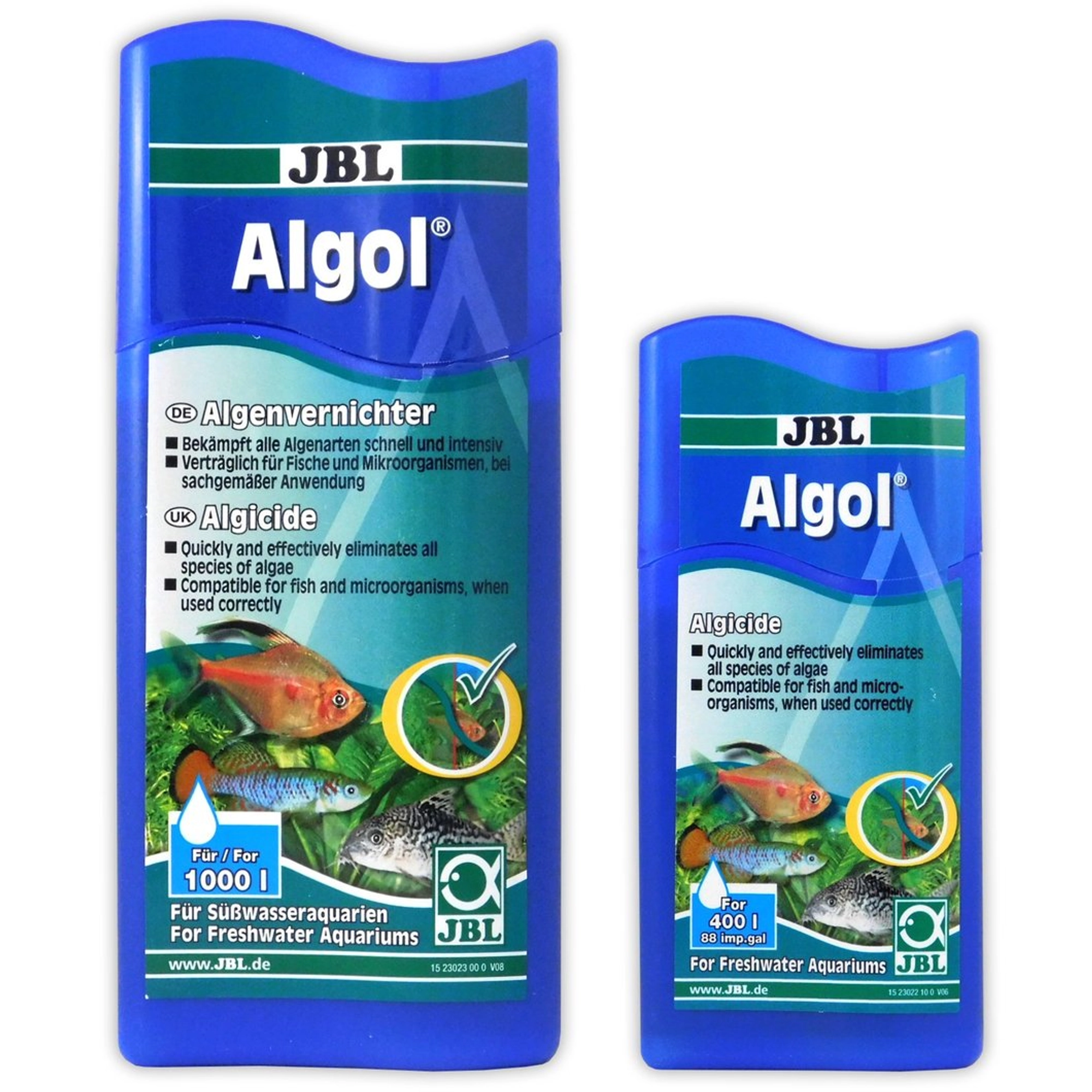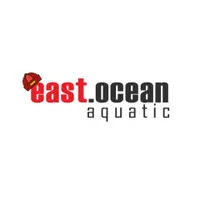





Product Details
- For beautiful freshwater aquariums: combats all algae species fast and intensively.
- Not harmful to fish and microorganisms when used correctly.
- Crystal-clear water. Combats all algae species.
- Application only in the morning. Before use a partial water change of 30 % is recommended. Ensure sufficient oxygen content by means of aeration during the treatment.
- Contents: 1 bottle Algol.
- To use: 10 ml/40 l Wasser. Example with 60 l aquarium: 15 ml.
PRODUCT INFORMATION
Appropriate, long-term algae control:
- Excessive algae growth always occurs when a surplus of nutrients (phosphates and nitrates) are present in the water.
- That’s why long-term algae control works in two steps: it combats algae with the anti-algae agent JBL Algol, then in step 2 it safely binds the nutrients.
- For this purpose JBL PhosEx ultra is ideal. Adding algae-eating animals, such as sucker catfish, shrimps and snails can also be a great help.
FAQ
What happens to the algae after I use an anti-algae agent?
> Any anti-algae agent, such as JBL AlgoPond forte, AlgoPond green or Algol cause the dead algae to decompose biologically and then be broken down bacterially. This in turn leads to an enormous oxygen consumption by the bacteria (nitrification) and to the release of the nutrients nitrate and phosphate, which were "bound" in the algae. In principle, this feeds the next generation of algae. This is the reason why JBL always recommends binding the released nutrients as the last step in algae control after the targeted control of the algae with an anti-algae agent. Since it is sufficient to remove one of the two nutrients, we recommend you remove the phosphate, and this can easily be carried out with a good phosphate remover (JBL PhosEx Pond or JBL PhosEx).
By the way, it is always better to remove dying or dead algae by hand. The fewer algae are degraded, the fewer nutrients are released again!
Is JBL Algol harmful for my shrimps?
> Negative effects of JBL Algol on freshwater shrimps cannot be ruled out, especially on sensitive dwarf shrimps.
In what intervals can JBL Algol be dosed ?
> We recommend an interval of 7 days when dosing JBL Algol again. Please ensure that a water change of 50-70% is carried out before each dose.
Please note that we cannot rule out adverse effects on aquatic plants after repeated applications. Furthermore JBL Algol does not eliminate the cause of emerging algae growth. For this please examine the care and maintenance of your aquarium.
How do mosses react to JBL Algol?
> When dealing with mosses, one must always reckon with sensitivities to Algol, depending on the species, with this always applying to moss balls. Midget shrimps can also exhibit a sensitive reaction to Algol; our experience varies according to the species. The general water parameters are also important.
I have a lot of algae in my cichlid tank. Unfortunately, one-time treatment with JBL Algol did not have any noticeable effect.
> With reference to algae in cichlid tanks. That is a permanent problem, because there is always an excess of nutrients in aquariums with few plants. It may be necessary to add more doses of JBL Algol, more or less at weekly intervals. Please make sure you always carry out a 50 % water change beforehand and ensure the aquarium is well aerated.
Can I kill off blue-green algae with JBL Algol?
> Blue-green algae, that is quite a complicated matter.
As is generally known, blue-green algae are bacteria. They photosynthesise, just like plants. Blue-green algae are among the oldest organisms in the world. They would have been extinct a long time ago if they didn’t have a few special properties. For example, they influence the medium on which they colonise to their own advantage, i.e. manipulate the environmental parameters (which only very few organisms are able to do). This property has secured their survival. In their natural surroundings, blue-green algae are absolute niche inhabitants, which are always inferior to other organisms in competition.
Blue-green algae need light and nutrients, just like plants.
Blue-green algae, though, also need a substrate for colonisation to grown on. They are inferior to "normal" biofilms both in nature and in an aquarium and can only spread if the “normal” biofilm has been destroyed and has partially died off. Then they colonise quickly and consequently grow over the “normal” biofilm. As they change the water parameters under their own film, the normal biofilm dies off expansively, and the blue-green algae aquarium is born.
Algaecides are only effective against blue algae to a certain degree.
The only effective method currently known is deprivation of light, meaning full deprivation, to which they exhibit a very sensitive reaction.
JBL Algol
Product Options
250ml
100ml
Delivery
 East Ocean Aquatic Havelock
East Ocean Aquatic Havelock Aquarium Fishes, Tanks & Supplies From East Ocean Aquatic Havelock


 SG
SG


